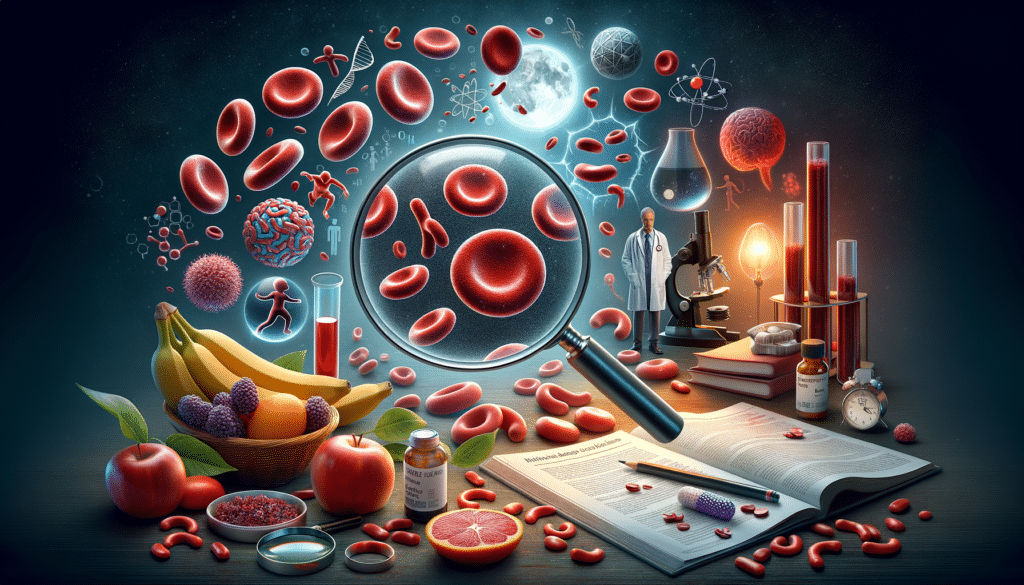Can Dietary Choices Support Living with Sickle Cell Anemia?
Dietary choices play a crucial role in managing sickle cell anemia, a genetic disorder that affects the shape of red blood cells. These cells can become rigid and sickle-shaped, leading to blockages in blood flow and a range of health complications. A well-balanced diet can help alleviate some of these symptoms and improve overall health.
Individuals with sickle cell anemia often require more calories than those without the condition due to increased energy expenditure. Therefore, a diet rich in calories, protein, and essential nutrients is vital. Foods high in folic acid, such as dark leafy greens, beans, and fortified cereals, are beneficial as they support the production of red blood cells. Additionally, omega-3 fatty acids found in fish like salmon and mackerel can reduce inflammation and improve blood flow.
Hydration is another critical aspect, as dehydration can exacerbate sickling of cells. Drinking plenty of water throughout the day helps maintain blood volume and reduce the risk of sickle cell crises. Moreover, limiting intake of alcohol and caffeine is advisable, as they can lead to dehydration.
While dietary choices are not a cure for sickle cell anemia, they can significantly impact the quality of life. By focusing on nutrient-rich foods and staying hydrated, individuals can better manage their symptoms and support their overall health.
Can Adequate Sleep Improve Quality of Life for Those with Sickle Cell Anemia?
Sleep is a fundamental component of health, and for individuals with sickle cell anemia, it can be particularly beneficial. Adequate sleep helps the body repair and rejuvenate, which is crucial for those dealing with chronic conditions. Poor sleep can exacerbate pain and fatigue, common symptoms of sickle cell anemia, making it essential to prioritize restful nights.
Research suggests that individuals with sickle cell anemia often experience sleep disturbances, including insomnia and sleep apnea. These disturbances can lead to increased pain episodes and reduced daytime functioning. Developing good sleep hygiene practices can help mitigate these issues. This includes maintaining a consistent sleep schedule, creating a comfortable sleep environment, and avoiding screens before bedtime.
Moreover, addressing sleep disorders such as sleep apnea through medical interventions can lead to significant improvements in quality of life. Continuous Positive Airway Pressure (CPAP) therapy is one option that can help individuals with sleep apnea breathe more easily during sleep.
In conclusion, prioritizing sleep can have a profound impact on managing sickle cell anemia. By ensuring adequate rest, individuals can reduce pain, improve mood, and enhance their overall quality of life.
Exploring Current Research and Treatment Options for Sickle Cell Anemia
Research on sickle cell anemia has made significant strides in recent years, offering hope for improved treatments and outcomes. While there is currently no universal cure, various treatment options are available to manage symptoms and prevent complications.
Hydroxyurea is one of the most commonly prescribed medications for sickle cell anemia. It works by increasing fetal hemoglobin levels, which can reduce the sickling of red blood cells and decrease the frequency of painful crises. Regular blood transfusions are another treatment option that can help manage severe anemia and reduce the risk of stroke.
Gene therapy is an exciting area of research that holds promise for a more permanent solution. Scientists are exploring ways to modify the genes responsible for sickle cell anemia, potentially providing a cure. Early clinical trials have shown positive results, but more research is needed before these treatments become widely available.
In addition to medical treatments, supportive care is crucial. This includes regular check-ups with healthcare providers, pain management strategies, and vaccinations to prevent infections.
Overall, the landscape of sickle cell anemia treatment is evolving, with ongoing research paving the way for innovative therapies. Staying informed about these developments can empower individuals to make informed decisions about their healthcare.


